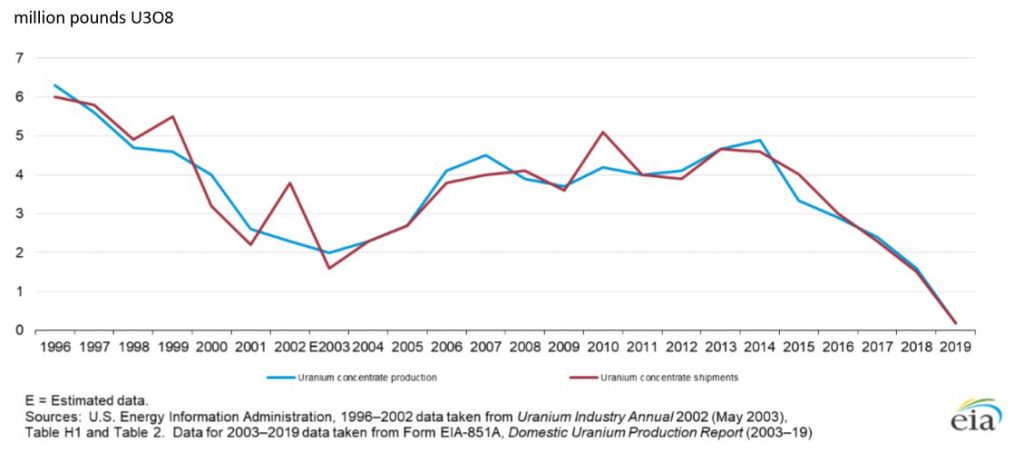US domestic production of uranium concentrate plunged 89% to 174,000 pounds of U3O8 (triuranium octoxide) last year, according to the latest annual report published by the US Energy Information Administration (EIA). This also represents a steep decline compared to the 4.89 million pounds the US produced five years earlier.
The production of uranium concentrate is the first step in the nation’s nuclear fuel production process. The U3O8 is converted into UF6 (uranium hexafluoride) to first enable uranium enrichment, then fuel pellet fabrication and finally fuel assembly fabrication.

The EIA records uranium production from six existing facilities: five in-situ leach (ISL) plants in Nebraska and Wyoming (Crow Butte operation, Lost Creek project, Ross CPP, North Butte and Smith Ranch-Highland operation) and one underground mine.
The report comes about a month after the Trump Administration released its plans to rescue the struggling US uranium mining industry.
At the end of the year, two conventional uranium mills — the Shootaring Canyon mill in Utah and the Sweetwater uranium project in Wyoming — were on standby with a total capacity of 3,750 t/d. The 2,000 t/d White Mesa mill in Utah was no longer producing uranium.
At the year’s end, three ISL plants — Lost Creek, Nichols Ranch ISR project, and Smith Ranch-Highland, all in Wyoming — were operating with a combined capacity of 9.5 million pounds U3O8 per year, the EIA said. Six ISL plants were on standby and seven ISL plants were planned for four states, including New Mexico, South Dakota, Texas and Wyoming.
Total estimated uranium reserves at year-end were 31 million pounds U3O8 at a maximum forward cost of up to $30/lb. At up to $50/lb and $100/lb, reported estimated reserves were 206 million pounds and 389 million pounds U3O8 respectively.
The EIA added that these reserves are a fraction of likely total domestic uranium reserves, as it did not include inferred resources that were not reported.
